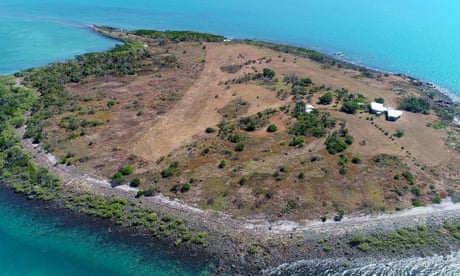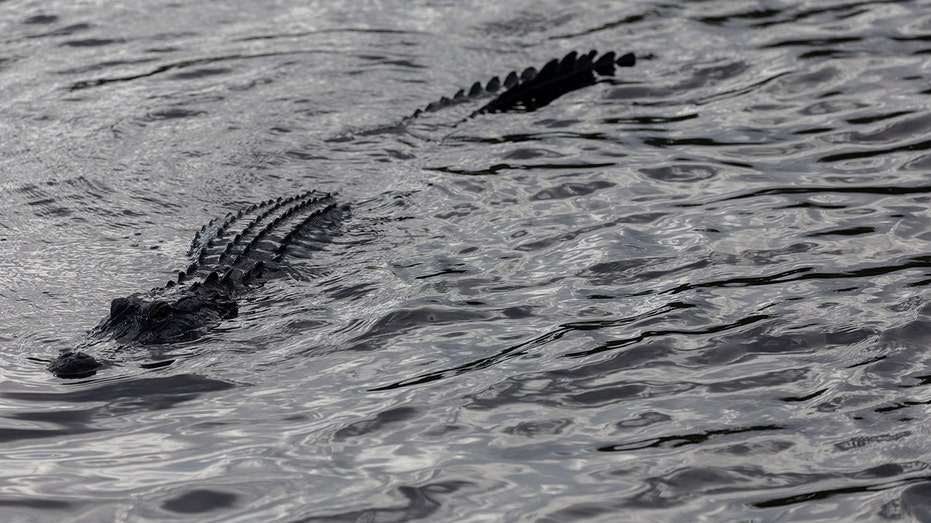- by foxnews
- 06 Mar 2025
‘Just ghastly’: the Queensland tropical island for sale was home to our worst ever family holiday
‘Just ghastly’: the Queensland tropical island for sale was home to our worst ever family holiday
- by theguardian
- 01 Apr 2023
- in news

I'm leaning over the side of the runabout, watching, fascinated, as multi-sized reef fish fight to feed on the vomit spreading in technicolour slo-mo.
My brother and uncle refuse to take me back to shore, so once the vomit's been consumed and the fish disappear, I have nothing to do but watch my skin burn, try not to throw up and fume about how much I hate it here.
It's 1977, I am 11 and my extended family has rented Poole Island in north Queensland for a week of the Christmas holidays.
"The worst holiday we ever had," my aunt reminisces down the phone, 46 years later. "Just ghastly.
"And so many march flies chasing us around. So vicious."
Later, she texts me a photo of a gold brooch in the shape of a march fly, a jokey holiday memento from my mother.
That island holiday has become the stuff of legend in our family, re-told with much hilarity at family gatherings after a glass or two of sparkling.
This week, amid news the island is for sale - "own a private island for under $1m" - I find Poole Island is dominating my social media feed, producing unwelcome flashbacks to the summer of '77.
According to the older members of my family, the island, just off Bowen, was described in glowing terms to my father as pretty much "a tropical paradise", with a large house, boat and swimming pool, immersed in nature and fringed by coral reefs.
"So cheap!" I can just imagine my father marvelling as he booked it.
Our party consisted of five adults and five children - my parents, three brothers, an aunt and uncle and their toddler, and another uncle, batching it, while his girlfriend/future wife was visiting family in England.
"Remember your father put the suitcases on the roof rack for the trip up, but didn't secure them properly?" my mother asks.
"We lost one suitcase with my clothes and your clothes, and another came unzipped and all the Christmas presents fell out along the Bruce Highway."
Mum spent the week in a sarong; I wore hideous, yellow, nylon flared shorts and a striped sun top bought at a Bowen bait shop. I was mortified.
With no gifts to exchange, Christmas was effectively cancelled. Morale was low.
"Your uncle came at me with a knife," my other uncle tells me now, sounding surprisingly nostalgic. "I think we had a fight about the boat." He says he ended up slinging a hammock in the trees to sleep.
The rest of us were hosted beneath a baking tin roof in what I remember as being like a shed, with two rough bedrooms, bathroom and living area - a mix of saggy, single daybeds and hammocks, with nets to tuck around like a shroud for protection from the vicious mosquitoes.
Poole island ("pool" island in my 11-year-old head) indeed had a pool.
"It was full of dead animals," my brother reminds me. "Basically, it was a puddle of slime filled with little dead rats and lizards."
There was no electricity, but the island came with its own generator. At the time, however, that didn't work. Canvassing family, no one can remember what we actually ate for the week.
One of the reasons the island was so cheap was that it was stinger (and box jellyfish) season. With no such thing as stinger suits back then, we were forced to don long sleeve tops and stockings to swim. My mother also warned us about deadly stone fish, so my "swims" consisted of sitting in an inch or so of water in jeans, shirt and hat with a fully zinc-ed face, splashing myself with water while freaking out about suspect-looking rocks.
The entire week was unrelentingly hot, with the occasional breath of oven-temperature wind offering no relief, even at night. With the generator broken, there were no fans, little sleep and many, many arguments.
"All I remember, apart from the fact you kids were so hideous, was getting very drunk and playing card games every night," my aunt says.
On day seven, sitting with scabby, sunburnt, mosquito-bumped skin, largely in embittered silence, we waited and waited for the boat to pick us up and take us back to the mainland.
Terrified we had been forgotten, while the adults smoked cigarettes and my brothers fought, I shimmied up the flagpole with a small hand mirror which I faced towards the mainland.
"It's OK," I told the family, puffing with effort and filled with girl-guide pride as my feet hit the ground. "I've sent an emergency SOS signal."
Coincidentally (I realise as an adult), the bloke in the boat puttered around the rocks into view. "Have a good time, then?" he called out, grinning.
- by foxnews
- descember 09, 2016
'Gate lice' run-ins have flyers demanding more airlines 'crack down' on pesky travel trend
Passengers are asking major airlines to do something about "gate lice" problem at airports. American Airlines currently has new tech to stop the line-cutters.
read more


